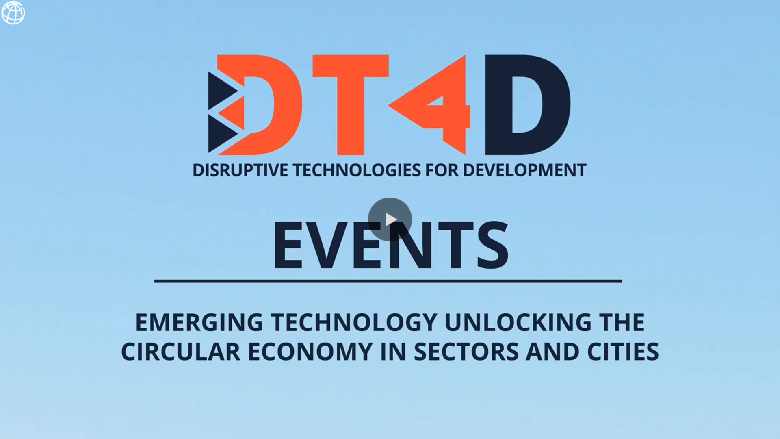The potential of the circular economy to support sustainable cities, regions and countries still needs to be unlocked. In cities and regions, the circular economy implies a systemic shift, whereby: services are provided, making efficient use of natural resources as primary materials, such as plastics, and optimizing their reuse; economic activities are planned and carried out in a way to close, slow and narrow loops across value chains; and infrastructure is designed and built to avoid linear lock-in to avoid material waste (OECD, 2020). Disruptive and transformative technologies play a crucial role in enabling circular business models in cities (Accenture, 2020).
This session explores the role of emerging technology solutions to support the circular economy in emerging markets. Gain insights on the role of private sector technology solutions in the building of a circular economy for recycled plastics in emerging markets. Further, learn about the DT4D Challenge, part of the DT4D Program, and how it matches innovative pilots, aiming to solve this and other developing countries’ challenges, with financing to test the scalability of their proposed solutions through World Bank Group (WBG) operations. In particular, learn first-hand about the Connecting Communities and Local Governments to Co-create Circular Economy Approaches in Indonesian Cities pilot, awarded through the second cohort of the DT4D Challenge.
